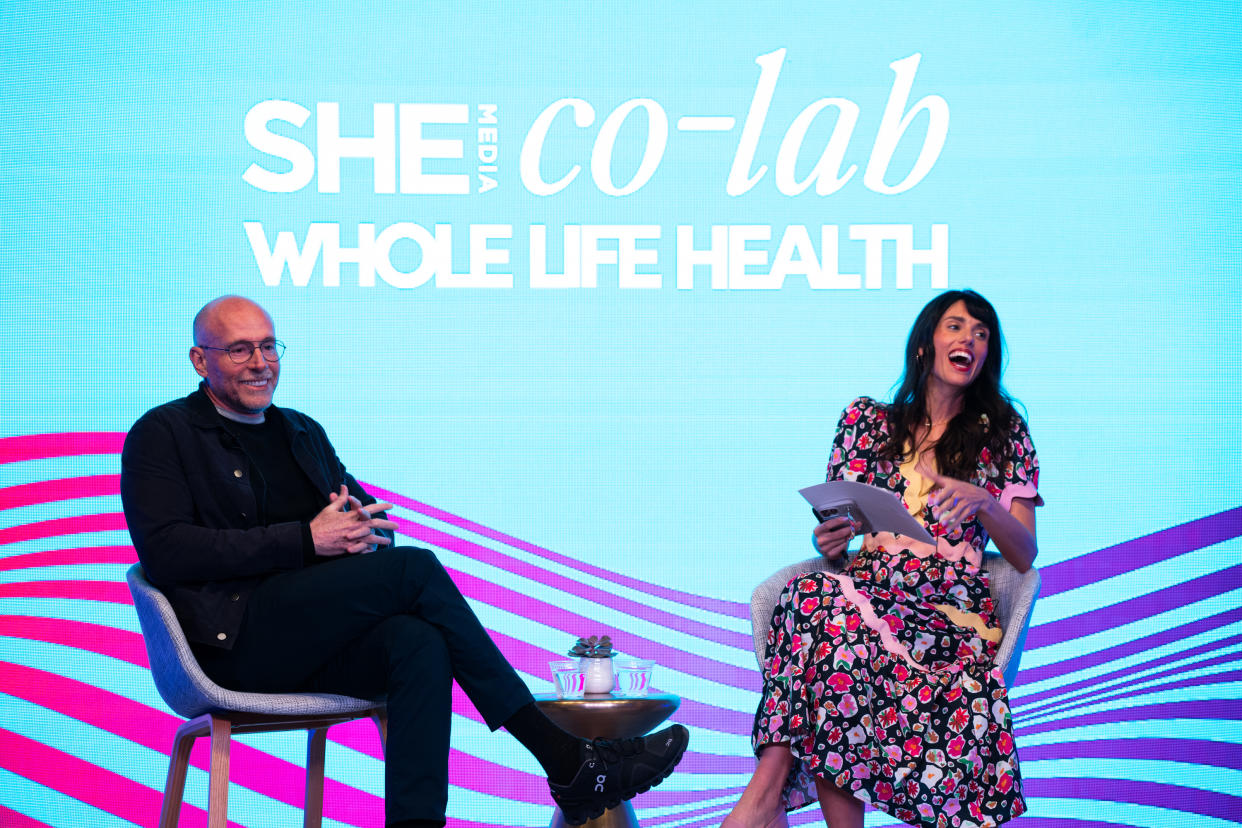Author, Podcaster, & Professor Scott Galloway on How a Lack of Male Mentors Is Hurting Boys

There’s an old proverb that says, “Blessed is he who plants trees under whose shade he will never sit.” For Scott Galloway — Professor of Marketing at NYU Stern School of Business, author, and host of the “Prof G” and “Pivot” podcasts — this proverb perfectly applies to the important work of the men who mentor teenage boys. Unfortunately (and unfairly), mentoring has gotten a bad rap, and Galloway isn’t afraid to put it bluntly: “The Catholic Church and Michael Jackson have f*cked it up for all of us.”
This was the discussion onstage during SHE Media’s Co-Lab at SXSW, where Galloway spoke with journalist and author Liz Plank about gender roles and how they’re being redefined.
More from SheKnows
“There’s a reflex gag notion when you suggest that a man get involved in a young boy’s life,” he continued, pointing out the all-too-common misconception that if you’re a 35-year-old man who wants to be involved in a 15-year-old boy’s life, something must be inherently wrong. Quoting the film Magnolia when a character says, “I have love to give, I just don’t know where to put it,” Galloway expanded on that thought.
“There are a ton of men who, for whatever reason, have a lot of love to give — in a paternal way — who don’t have many outlets for it,” he said. “Or a fraternal way. And society is telling them that it’s ‘weird,’ and we should be suspect of them if they want to get involved in a young man’s life.”
But society has it all wrong.
It isn’t a lack of education, or media influence, or any social movements, said Galloway, that cause a young man to fail: it’s the loss of a male role model. He pointed out a sobering fact: “There are a ton of boys who will go through pretty much their entire adolescence with almost no involvement from men.” The U.S. has more single-parent households than any other country except Sweden. Teachers, up until the third grade, are 92% female. The majority of therapists are women. “We need to get men more involved in boys’ lives,” he said, citing that research shows these circumstances affect adolescent boys differently than their female counterparts, rendering them far less emotionally strong than girls. Though they may be physically stronger, boys are surprisingly fragile when it comes to emotions.
True masculinity, in Galloway’s opinion, comes from the ability to take care of yourself — and in turn, take care of others, such as your family and your parents — but then take it a step further and extend that protective umbrella to mentoring young boys who need it. It’s not weird or unnatural, and that viewpoint means we’re failing our boys. To step in and offer them the male guidance that could make a substantial difference in their lives is a noble calling, one that more men should consider stepping up to.
“The real expression of masculinity, and starting to solve the problem,” stated Galloway, “is to say, ‘I am so strong. I have done such a good job taking care of myself, taking care of my family … now I’m going to get involved in the lives of other young men.”
Best of SheKnows
Celebrity Moms Who Were Honest About Miscarriage & Pregnancy Loss — Because It Matters
Get Some Ink Inspo From These 41 Celebrities Who Have Tattoos Honoring Their Kids
Brett Roth & Jasmine Roth & All the Other Celebrity Pregnancy Announcements of 2024
Sign up for SheKnows' Newsletter. For the latest news, follow us on Facebook, Twitter, and Instagram.

